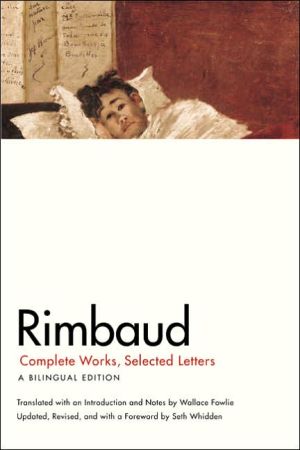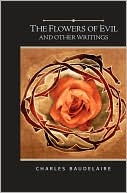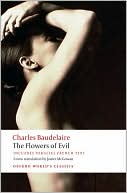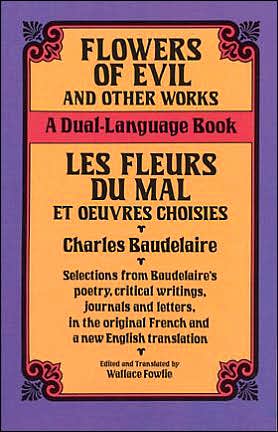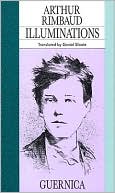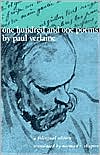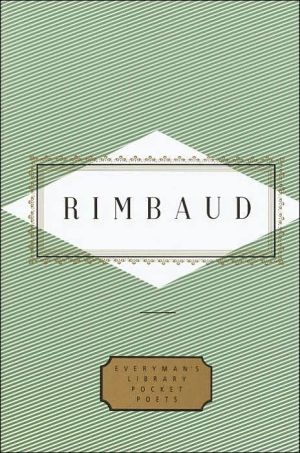Collected Poems
Stéphane Mallarmé (1842-1898) is one of the giants of nineteenth-century French poetry. Leader of the Symbolist movement, he exerted a powerful influence on modern literature and thought, which can be traced in the works of Paul Valéry, W.B. Yeats, and Jacques Derrida. From his early twenties until the time of his death, Mallarmé produced poems of astonishing originality and beauty, many of which have become classics.\ \ In the Collected Poems, Henry Weinfield brings the oeuvre of this...
Search in google:
"Weinfield's versions are superb—true miracles, I believe—and give us the flavor of Mallarmé's work for the first time."—Paul Auster, Editor, The Random House Book of 20th-Century French PoetryPublishers WeeklyTo be translated, the work of Mallarm must be transmuted, leading to a poetry just as weirdly and irreducibly English as his is in French. But alchemical operations are conducted according to rules, and poet Weinfield (Sonnets Elegiac and Satirical) has chosen as his focus Mallarm's elaboration of rhyme and meter. Since poetic forms are as indigenous to their languages as the senses and sounds of words themselves (and since English has many fewer rhyme-words than French), this is a brave undertaking. Mallarm's work subverts the standardized, highly rhetorical conventions of traditional French verse; he uses the confines of poetic form to set free and play with private images and syntactical or semantic ambiguities. English poetry is much less formal-many of the conventions it once observed have fallen into abeyance during the last century. By now, there are relatively few poets with a sufficient command of form to use it against the grain in the manner of Mallarm. Unfortunately, Weinfield is not among them: his rhymes are flat and obtrusive, he lacks prosodic tact, and his choice of diction, which appears propelled more by the dictionary than by the drift of the poems, aggravates matters. (Nov.)
\ Publishers Weekly - Publisher's Weekly\ To be translated, the work of Mallarm must be transmuted, leading to a poetry just as weirdly and irreducibly English as his is in French. But alchemical operations are conducted according to rules, and poet Weinfield (Sonnets Elegiac and Satirical) has chosen as his focus Mallarm's elaboration of rhyme and meter. Since poetic forms are as indigenous to their languages as the senses and sounds of words themselves (and since English has many fewer rhyme-words than French), this is a brave undertaking. Mallarm's work subverts the standardized, highly rhetorical conventions of traditional French verse; he uses the confines of poetic form to set free and play with private images and syntactical or semantic ambiguities. English poetry is much less formal-many of the conventions it once observed have fallen into abeyance during the last century. By now, there are relatively few poets with a sufficient command of form to use it against the grain in the manner of Mallarm. Unfortunately, Weinfield is not among them: his rhymes are flat and obtrusive, he lacks prosodic tact, and his choice of diction, which appears propelled more by the dictionary than by the drift of the poems, aggravates matters. (Nov.)\ \ \ \ \ Library JournalMallarm was a French Symbolist poet of the 19th century who had much to do with molding the literature of our times. Until now, however, his writings have been unevenly and incompletely represented in English. This collection, put together and translated by poet/scholar Weinfield, makes the poems of Mallarm accessible to late 20th-century readers for the first time. This hefty volume contains Weinfield's introduction; the poems and prose poems themselves, with English and French versions en face; and a meticulous poem-by-poem critique and commentary. By staying close to the language and meter of the originals, Weinfield has artfully retained their flavor. In 1866, when Mallarm was composing "Afternoon of a Faun," which the French poet Paul Valry considered the greatest poem in all of French literature, Mallarm wrote, "When a poem is ripe, it will drop free. You can see that I'm imitating the laws of nature." Throughout, the poet's creative process imitates nature as it ripens into the fresh fruits of his poetry. Essential for all libraries that collect poetry in English translation.-Judy Clarence, California State Univ. Lib., Hayward\ \

